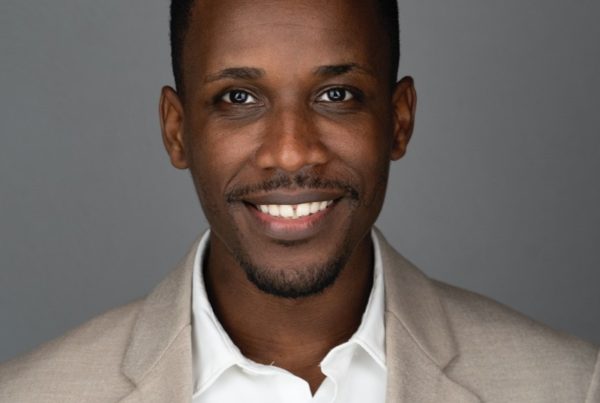Podcast: Play in new window | Download
Subscribe: RSS
Leadership is Evolving – Are You?

Dr. Jeffrey Spahn
It is easy in these unsettling times to unconsciously get dragged into fear and negativity, to just accept mediocrity or to move into a stagnant holding pattern. Yet we humans have an impressive track record of rising above and beyond crisis in spectacular fashion.
In his forthcoming book to be published by McGraw-Hill, Leading Leaders with Simultaneity: A New Way of Leading and Following, Dr. Jeffrey Spahn puts forth that crisis, if met and led in a particular way, can create the perfect storm for collective flow, unprecedented Innovation and in sync execution.
Dr. Jeffrey Spahn has integrated insights from business and philosophy, arts and athletics, science and spirituality to develop the distinctive leadership practice, Simultaneity™. With a degree in business from the University of Michigan and a doctorate from the University of Chicago, he grounds Simultaneity™ in sound scholarship.
After more than twelve years of executive leadership, Jeff taught business graduate students and conducted research on the purpose of business. During this investigation he engaged many of the top executives in the United States. In today’s conversation he shares with us his practical experience applying these principles through his executive leadership clients.
What We Discuss With Dr. Jeffrey Spahn In This Episode
- What can leaders do to create opportunities in the midst of this crisis?
- How do leaders lead each other – leading and following at the same time?
- The 3 keys to developing a culture of curious conviction that leads to rapid innovation
- How to invite others into a collaborative conversation to solve a problem
- When to practice situational leadership vs simultaneity
- The difference between collective will and consensus
- The importance of mindfulness and getting quiet in order to access a higher intelligence
- How to work effectively with virtual teams
Episode Transcript Highlights
Redefining Leadership
A leader is defined as someone who has followers. A follower is someone who goes where the leader goes, who takes the position of the leader, and conforms to the leader. That’s conformity and the exclusion of leadership, the exact opposite of what we need particularly in crisis – which is innovation.
Conformity doesn’t create innovation.
We need leadership that is grounded in diversity and inclusion, not only for innovation but also for social justice. Yet our fundamental paradigm around leadership is following. We need to view leadership is leading leaders.
In every crisis is opportunity. The current crisis is accentuating the spiraling complexity and rampant change that’s always happening. Information, power and leadership is being dispersed in an exponential way that we’re not used to.
We need an expanded definition of leadership: leader-ship; a container or ship of leaders. That’s what the earth is becoming more and more – a ship of leaders – where leaders both lead and follow in the same action.
Embracing a Curious Conviction
A curious conviction becomes the key skill in leading leaders. Everyone must bring a curious conviction in order the leverage the complexity and change, because we’re ready for it.
The first key to creating a culture of curious conviction is to believe in the creative principle of opposites. Like with a battery which has a positive and a negative, the charge comes from the difference of that energy. If we can hold the difference of our point of view and perspective as an opportunity to be creative, then we have something going there.
The second key is to bring your convictions as a piece of the emerging conversation or project. That is different than bringing your piece as the whole, to get the other person or people to think like you. It’s also different than withholding what you know.
When everyone sees their convictions as pieces, then we focus on what is emerging and not on who is winning this conversation or proving themselves smarter than others.
The third key is being curious. That’s different than judging. It’s about observing.
Leaders may say they want to be collaborative but what they do is ask leading questions to leading people to their point of view. That undermines trust.
Getting Into Flow
When you invite others into a conversation, use the 3 keys to a curious conviction in order to get into that flow space where you lifted and guided by an energy beyond yourself.
There is a time for chain of command and situational leadership, and there’s a time for simultaneity – leading and following at the same time.
When you have been living with a curious conviction, you’ll have the trust together, for when a directive is necessary.
A lot of times consensus is the least common denominator, whereas collective will comes out of our differences into something new.
When making lone decisions, leaders need to feed their decisions with collective intelligence.
It’s important that leaders take the time to get quiet and tap into their intuition in order to make quality decisions, informed by intelligence.
With virtual teams, it’s easy to unintentionally talk over each other. It requires the facilitator to be more active and directive to prevent that from happening, and to help the curious conviction.
The directive and the curious conviction are not separate, they can enhance each other.
Episode Resources 
- Free Webinar – Courageous and Creativity Is Contagious Too
- Free Leadership Questionnaire (includes free coaching session)
- We The Leader: Build a Team of Equals Who All Lead AND Follow to Drive Creativity and Innovation
Connect With Dr. Jeffrey Spahn
- Website: https://www.leadingleadersinc.com
- LinkedIn: https://www.linkedin.com/in/jeffrey-spahn
Did You Enjoy The Podcast?
If you like this episode let us know! Reviews for the podcast on iTunes are greatly appreciated. This helps us reach more entrepreneurs seeking to make a positive impact in the world. If you received value from this episode, it would mean so much if you could take a moment and leave your 5-star rating and review. You can do that by visiting here. Thank you! Together we can make a difference!
Additional Episodes You May Like
- 338: Jeremy Scrivens: Transforming the Future of Work Through Leadership and Convergence
- 320: Norman Wolfe: Transforming Your Business Into a Living Organization
- 313: Andrew Hewitt: Changing The Game Of Business For Good
- 296: Jeff Gothelf: How To Make The Pace Of Change Your Competitive Advantage
- 242: Paresh Shah: Lifter Leadership and a New Model of Business
- 257: Karen Walker: CEO Secrets To Sustainable Business Growth
- 214: Jim Jubelirer: Exponential Mindset – How To Thrive As The Pace Of Change Increases
- 209: Ron Carucci: Powering Your Transformation Journey










